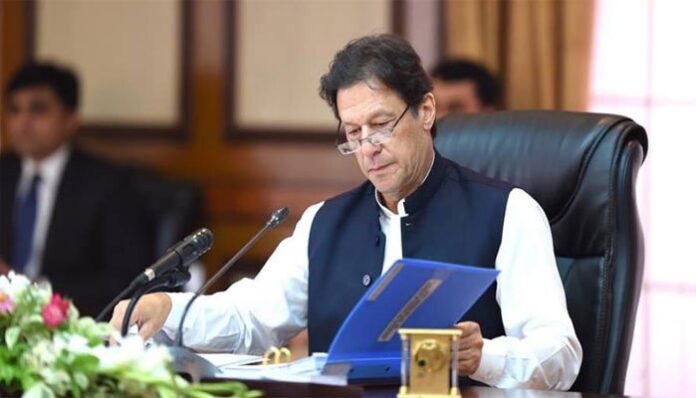ISLAMABAD: Prime Minister Imran Khan on Friday said that despite the worst balance of payment crisis in 2018, economic problems due to COVID-19, high commodity prices in the international market, along with the direct and indirect impact of humanitarian crisis in Afghanistan, Pakistan was expected to achieve economic growth of over 4 per cent in the current fiscal year – which is a major success.
“Since we inherited a huge circular debt, bad exports policies, unstable financial conditions, less-competitive business environment and the policies of lower incentives for the private sector, the past three of years of the present government are an economic success story,” he added.
The prime minister expressed these views while presiding over a meeting of the Macroeconomic Advisory Group. The meeting was attended by Federal Ministers Shaukat Tarin, Hammad Azhar, Chaudhry Fawad Hussain, Asad Umar, Makhdoom Khusro Bakhtiar, Syed Fakhar Imam, Minister of State Farrukh Habib, Advisor to PM Abdul Razzak Dawood, Special Assistants to PM Dr Sania Nishtar, Dr Shehbaz Gill, SBP Governor Reza Baqir and other senior officials concerned.
He said the government’s policy of smart lockdowns, incentives for the construction industry, social protection programme and subsidy for Small and Medium Enterprises (SMEs) helped move the economy forward on a sustainable pace – a fact appreciated by analysts at global level.
The meeting was given a comprehensive review of the overall economy situation in the country, the government’s steps to minimise the impact of increase in the price of essential items and its economic achievements over the last three years.
The meeting was told owing to the strong measures taken for economic stabilisation after successfully coming out of the fiscal crisis inherited from the previous government, Pakistan realised more economic progress even during a pandemic as compared to other regional countries.
It was told that with 25 per cent growth in exports and the highest ever increase of 38pc in tax revenue, the country also recorded an increase of 27pc in remittances.
Moreover, the meeting was told that with record incomes in the agriculture sector – transfer of an additional income of Rs1,100 billion to farmers, record Rs900 billion of profit in the industrial sector, development of Information Technology (IT) sector due to the government’s policies as well as successful tariff negotiations with Independent Power Producers (IPPs), a downslide has also been witnessed in the monthly accumulation of circular debt.
In addition to the above, the government fulfilled its promise of a welfare state by launching the biggest social safety programme under Ehsaas, brought institutional reforms and successfully complied with the Financial Action Task Force (FATF’s) conditions which saved the country from going into the blacklist, the meeting was apprised.
Participants of the meeting were presented with proposals to mitigate the transfer of the effects of high global commodity prices to common people, including an increase in incomes, increasing the purchasing power of the people, subsidies focused on middle and lower-income classes and the expansion of social safety net.
At the conclusion of the meeting, Prime Minister Imran Khan directed the concerned departments to coordinate and implement long-term and short-term plans for further betterment of Pakistan’s macroeconomic condition in addition to the improvement in the common man’s economic condition.























